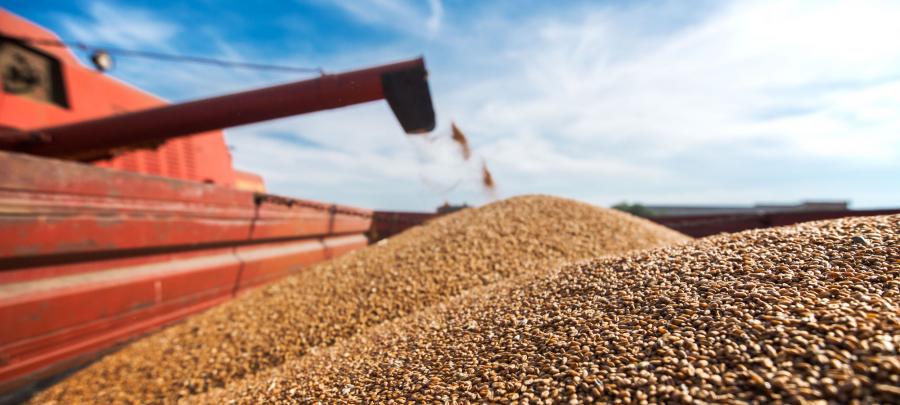
As sociology has turned its methods to the co-influences between society and environmental conditions, a series of paradigms have shifted the field’s orientation from the early industrial assumption that humans were “exempt” from environmental limits, to more nuanced paradigms on the dynamic interactions between societies and their biota. The “treadmill of production,” “risk-based reflexive modernization,” and “ecological modernization” show the evolution of theory that has accompanied the 21st century realities of climate change and other wicked environmental challenges. This lesson is planned for advanced students who wish to understand how sociology paradigms have evolved in concert with environmental degradation, and who may seek to integrate ideas of risk tolerance and socio-environmental futures that involve both sustainable design and advanced technologies.
- Learn about three distinct paradigms in sociology that have environmental applications.
- Apply the paradigms to a specific thought experiment on the industrial food system.
- Interrogate how cultural perspectives and normative values can skew behaviors and disadvantage sustainable solutions.
- Consider how paradigm shifts have affected the natural sciences such as ecology, and compare this epistemological evolution to shifting paradigms in sociology.
- Use interdisciplinary approaches to evaluate land-sparing, land-sharing, and the need to improve biodiversity and wildlife habitat at the same time as we increase food production.

Consider this familiar sight in a standard grocery store. Ask students to consider the image and how it makes them feel as consumers, eaters, and environmental thinkers. It contains at least three layers of socio-environmental meaning:
- Material – The eggs are a product of industrial food production with its environmental impacts
- Ideological – Abundance, consumer choice, cheapness
- Solutions – Addresses hunger, but creates food waste, animal and human rights issues, runoff from industrial chicken farms
How do the social and environmental structures in this image come together to represent the challenges to our food production paradigm, and opportunities for reform?
-
Evolving Paradigms in Sociology
Start with the Hook above (industrial eggs). View excerpts from Dana Fisher’s lecture, “Society’s Engagement with the Environment,” including:- Treadmill of Production (3:07-8:24)
- Ecological Modernization (11:40-13:36)
- Risk-Based Reflexive Modernization (15:15-19:15)
- Comparison and Synthesis (21:13-24:40).
Review the slides from her lecture.
DocumentFisher – Society Engagement Excerpt.pptx (1.02 MB)Ask the students to free write for 3 minutes on which of the three paradigms in sociology most resonates with the present socio-environmental historical moment: “treadmill of production,” “risk-based reflexive modernization” or “ecological modernization.” Have them share ideas about this moment in history in a 5-minute lightning session.
Invite students to question whether these three paradigms are also temporal, that is, whether a “treadmill” perspective may be seen as outdated, a relic of a world with abundant natural resources and no awareness of climate change. Do “risk-based reflexive modernization” or “ecological modernization” better capture the eco-sociological puzzles of the 21st century?
-
Food Waste
Read the article "Biodiversity effects of food system sustainability actions from farm to fork" (Published in PNAS, April 2022). Then, review a summary of the causes of food waste in farms, retail, and consumer stages from the U.S. Department of Agriculture and review the basics of food waste diversion from the U.S. Environmental Protection Agency.As a full class, ask students to trace the industrial food system’s orientation toward food production, distribution, and waste according to the three sociological paradigms above. What parts of the system act in a retrograde manner, as though we are “exempt” from ecological limits, but subject to economic competition, on a “treadmill of production”? What resources make that attitude possible (cheap petroleum, fertilizers, pesticides, processed foods, migrant labor)? What does “overshoot” look like (degraded lands and water, climate forcing, reduced food quality, food waste, human rights issues)?
-
Small Groups
Divide the class into small groups (3-4 individuals). Assign each group either to “risk-based reflexive modernization” or the “ecological modernization” paradigm.Ask the “risk-reflex” groups to discuss how the waste problems arrive “on cat’s paws,” and how distribution structures like remote food production lead to food waste, which exacerbates impacts on biodiversity. Have each group identify 2-3 structural elements of the industrial food system that increase the risk of waste. How is industrial food production ill-suited to solving the problem of food waste that it creates?
Ask the “eco-mod” groups to consider alternatives to industrial production that involve local farm networks, redistribution channels to target the loci of waste (restaurants, food miles, fast food), and values-based shifts in how communities relate to the production and consumption of their food. They may also suggest hyper-technological solutions to food waste, including vertical farms, hydroponics, advanced preservation methods, and lab-grown meats. These groups get to be the dreamers who suggest synthesis among state, market, and social actors to resolve the food waste issue.
-
Synthesis
Pair students of opposite groups together to synthesize their ideas.What problems identified by the risk-reflex groups can be addressed by solutions presented by the eco-mod groups? What further benefits would result from this evolution of the food system (biodiversity, lower climate impacts, reduced NPK in watersheds, farm jobs, tighter knit communities, fresher food and in-season cuisines, robust farm-to-consumer co-ops).
Have volunteer pairs present their problem-solution insights to the whole group.
Summarize the major findings and illustrate how this issue of food waste has impacts on intersectional communities, esp. BIPOC, migrant labor, residents of food deserts.
-
Conclusion and Extension
Think further downstream on the effects of reduced food waste: the socio-environmental benefits of greater biodiversity in former monoculture farms and marginal land that is allowed to re-wild and provide recreation and wildlife habitat. This is called “land-sparing” in the Food Waste article. A useful mini-review of “land-sparing” versus “land sharing” may help prime students for this discussion, which could take an additional class period if performed in depth.Would these biodiversity gains benefit groups marginalized by the industrial food system? How would sociology approach this ecological benefit in human terms, related to food sovereignty, and food security? What kinds of opportunities might disadvantaged groups find from a reformed, community-integrated food system that supports greater biodiversity?
Close by having each student reconsider the Industrial Eggs hook, then sketch out the Egg Display of a better tomorrow (c. 2050). In a zero-waste, carbon-free food economy that has achieved greater equality across human groups, what does egg shopping look like? Are solutions achieved through ecological, sociological, or interdisciplinary means?
-
Sparing vs. Sharing: the Great Debate Over How to Protect Nature
It is one of the biggest questions in conservation: Should we be sharing our landscapes with nature by reviving small woodlands and adopting small-scale eco-friendly farming? Or should we instead be sparing large tracts of land for nature’s exclusive use—by creating more national parks and industrializing agriculture on existing farmland? The argument between “sparing” and “sharing” as a conservation tool has been raging since researchers first coined the terms more than a decade ago.
Pearce, F. (2018, December 3). Sparing vs Sharing: The Great Debate Over How to Protect Nature. Yale Environment 360. https://e360.yale.edu/features/sparing-vs-sharing-the-great-debate-over-how-to-protect-nature
-
On the engagement with social theory in food studies: cultural symbols and social practices
This paper discusses the specific role of increased social-theoretical engagements in food studies and specifically discusses commitments to contemporary theories of practice. Neuman suggests a particular theoretical direction, arguing that food studies ought to focus less on the communicative functions of food consumption and more on food consumption as part of the dynamics of social practices. By “communicative functions,” he means food consumption understood in terms of the appropriation and use of cultural symbols, working as a resource for expressing individuality, group membership, social movement action, and/or group distinctions.
Neuman, N. (2019). On the engagement with social theory in food studies: cultural symbols and social practices. Food, Culture & Society, 22(1), 78-94. https://doi.org/10.1080/15528014.2018.1547069
-
Social–ecological experiments to foster agroecological transition
Given the multiple scales, the diversity of stakeholders and the many different interactions between social and ecological processes, the dynamics of agricultural SES are highly uncertain and complex. Global change and human use of agricultural SES are creating novel socio-environmental conditions and associated problems, such as food quality, water quality or health, that are difficult to understand and tackle. Solving these wicked problems, with complex causes and consequences, calls for a new approach in research, shifting from positivist, mono-disciplinary, local-scale approaches to adaptive, participatory and transdisciplinary landscape-scale strategies (Angelstam et al., 2013, 2018).
Gaba, S. & Bretagnolle, V. (2020). Social–ecological experiments to foster agroecological transition. People & Nature, 2(2), 317-327. https://doi.org/10.1002/pan3.10078